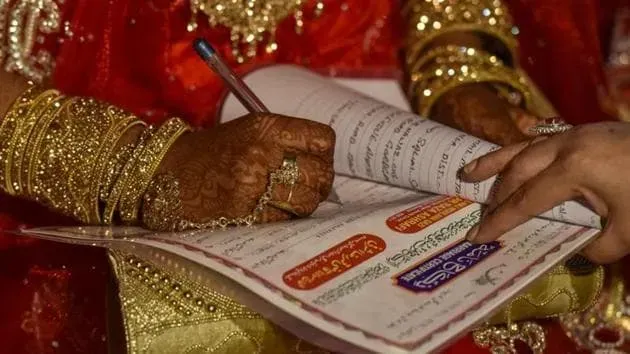Background and Context
The Delhi High Court has recently expressed dissatisfaction with the Delhi Government's inaction regarding the implementation of online registration for marriages solemnized under Muslim and Christian personal laws. This directive stems from a judicial order passed nearly three years ago under the Compulsory Registration of Marriage Order, 2014, which has not been adequately enforced, resulting in a significant backlog and administrative inefficiencies.
Judicial Frustration and Systematic Failure
Justice Sanjeev Narula's strong remarks highlight a "systematic failure" by the Delhi Government in addressing this critical issue. Despite an earlier assurance by the government to issue necessary administrative instructions within two months, no substantial progress has been made. This prolonged delay has exacerbated the difficulties faced by individuals seeking official recognition for their marriages, particularly those under Muslim and Christian personal laws.
Case Example: The Elahi Couple
A notable case illustrating these challenges involves a couple, Sh. Rehan Elahi and his wife, who solemnized their marriage under Muslim personal law in 1995. The couple's need to apply for a parental visa to Canada necessitated the submission of a marriage registration certificate. However, the existing Delhi government portal only facilitated registrations under the Hindu Marriage Act, 1955, and the Special Marriage Act, 1954, excluding those under Muslim and Christian laws.
Court's Directive and Immediate Steps
In response to the Elahi couple's plea, the court directed the Delhi Government's IT Department to immediately enable the registration of marriages under the Compulsory Registration of Marriage Order, 2014, on the government portal. This directive is intended to ensure that similar issues are promptly addressed, preventing future administrative hurdles and facilitating smoother processes for the public.
Broader Implications and Legal Requirements
The absence of an established procedure for registering marriages under Muslim and Christian personal laws not only affects individuals' legal and administrative proceedings but also impacts their ability to obtain necessary documentation for various purposes, such as visas and other legal rights. The court underscored the imperative nature of this action to fulfill legal requirements and avoid recurrent difficulties.
Legal Representation and Court Proceedings
The legal proceedings saw representation from prominent advocates, including Mr. Sumant Narang, Mr. Aditya Singh, and Ms. Bhavya Nakra for the petitioners, and Mr. Vishal Chanda for the respondents. The court's decision to direct immediate action reflects the urgency and importance of addressing this systemic issue.
Moving Forward: Ensuring Compliance and Efficiency
The court's directive to the IT Department and the Marriage Branch of the Revenue Department, Government of NCT of Delhi, marks a critical step towards ensuring compliance with the Compulsory Registration of Marriage Order, 2014. The emphasis on creating an online infrastructure aims to streamline the process, making it more accessible and efficient for the public.
In conclusion, the Delhi High Court's intervention underscores the necessity for robust administrative mechanisms to support the registration of marriages under various personal laws. The court's directive to the Delhi Government is a crucial step towards rectifying the systemic failures and ensuring that legal processes are inclusive and accessible to all citizens, irrespective of their personal laws. The resolution of this issue will not only benefit the Elahi couple but also set a precedent for addressing similar cases in the future, fostering a more efficient and just administrative system.










0 Comments
Thank you for your response. It will help us to improve in the future.